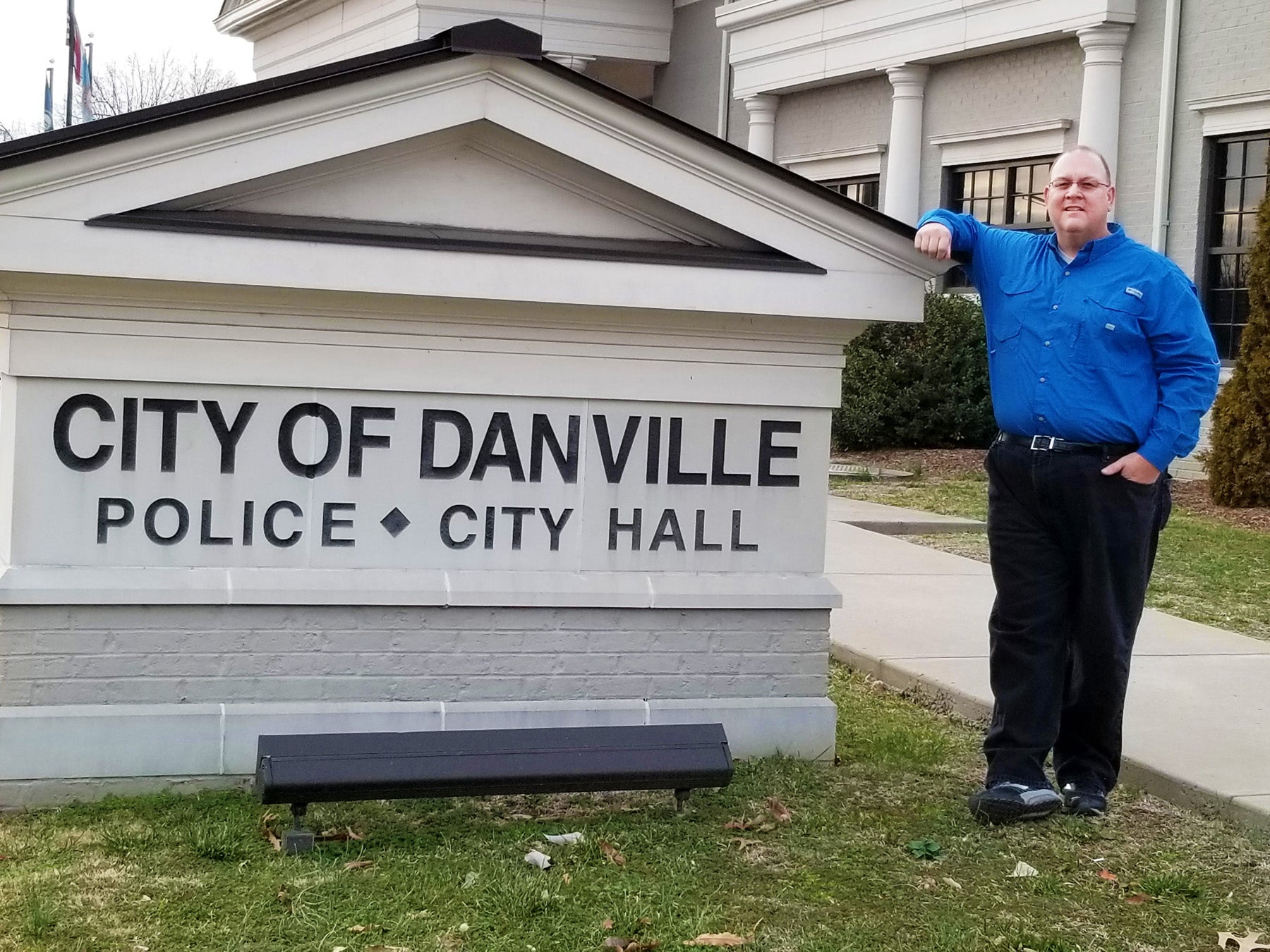New city manager talks about moving Danville forward, not looking back
Published 5:01 pm Tuesday, February 18, 2020
‘A change agent’
Editor’s note: This is the first of a two-part series about David Milliron, the City of Danville’s new city manager, and his takes on improving employee morale, reviewing compensation packages, recruiting for the city and more.
David Milliron says he participated in a lot of due diligence before he even got to Danville for his new job as city manager.
“I was engaged in the entire process of hiring the HR manager, working and interviewing before I showed up on the scene,” he says one Thursday evening from his office at city hall.
Milliron had just wrapped up a few meetings for the day, one being the annual city retreat to prepare for budget time, which ran about four hours long. Then, he had one directly afterwards on hiring a new fire chief, since Ken Pflug has retired.
Two large gift baskets still sit on his desk in the background, from area businesses welcoming him to the block. It’s dark outside and empty inside most of the building. Milliron says if his office lights are on at night, that means he’s still here, most likely catching up on reading reports, or making a dent in one of the various stacks of files left for him.
Although he had some transitional time with former City Manager Ron Scott, he’s still finding things he has to learn, and taking time to study up on them before making changes. One of the most important things Milliron has attempted to delve into is the work culture of city hall — who does what, and how they do it.
As soon as he led his first weekly department-head meeting, Milliron put his own twist on things. He gave managers an exercise to get things going, like arranging themselves around a table by birthdate while they were unable to verbally communicate, or in order of seniority another time.
“Exercises to get them to realize there are different ways to approach anything at hand. … People had to observe, figure out how to communicate with one another. … Then we discuss it, who took charge, why did you defer to that person, who brought what to the table,” Milliron explains.
The new city manager agreed to meet to talk about how he plans on moving forward, and made it clear he doesn’t want to dwell on the past. When asked about the report done by an outside attorney investigating grievances filed by employees, Milliron said he has no reaction.
“It’s in the past, and I run a city with professional staff.”
His first two days on the job in January were all interviews and follow-up for the open human resources director position. The city hired Randy Boyd, who began on Monday.
“I wanted to make sure we had someone who understood compliancing, employee relations.” Milliron already has two classes set up in March, inviting employees into the chambers for training on workplace harassment, as well as one on best practices for determining pay rates for local government positions.
He was asked if city officials were required to attend the training.
“Officials can show up, but it’s not my job to train the elected officials. My job is to manage the city and staff, and I never forget that … (Officials) are more than welcome to sit in on the training; they get an invite, as well.”
Milliron says he is “starting with a fresh slate here — making sure that we are (offering) training, setting expectations, making sure that employees have an open environment, working aggressively on management/supervisory training.”
But, he adds, “At some point, I’m sitting on my hands. No manager or CEO worth their salt would come in and make sweeping changes. I have to see what’s going on with my own eyes and understand.”
Yes, he says about the grievances, “there were allegations made, and that was all part of what took place before I got here. The previous administration had the opportunity to address and take care of that; they believe whatever they believe. It doesn’t behoove me to go back and make hay of it, if you will.”
Although a long-awaited compensation study was finally returned — delivered to his desk on Scott’s last day — Milliron has decided it’s not ready to be released. “Under state law, it’s still a work product. It won’t be a public record at this point,” he says. “When I’m ready, I will be making a presentation to the commission. I will address that. This is a very important topic for me.”
One of the first things he was made aware of on the job is that the police department is underpaid.
“We can’t recruit folks. Same thing with the fire department,” he says. “Every department was saying the same thing. But, in each department, there’s inequities across the board …”
Milliron says Chief Tony Gray has already given him some ideas of “where we need to be with initial starting pay.” But that means the city must come up with more efficient ways to operate the government and find cost-savings across the board, he says. He’s already opted out of the Kentucky-run retirement plan, which he says will save the city about $91,000 over five years — money he plans to use to offer more to new recruits.
“Can we do it cheaper without sacrificing service delivery? My key mantra, my message to the staff has been challenging them to be very creative on ways that we operate. Ways to be more efficient. Ideas are already starting to come in. We will figure it out. The public wants employees to be taken care of, and the public needs to understand how rich the benefits package is for those who work for the city.”
One of the first fires Milliron had to extinguish was employee dissatisfaction about how the city’s insurance was changed recently, apparently without notification to employees.
“The change was made in October and went into effect Jan. 1, but I changed that back retroactively immediately,” he says. “You’re an employee, the plan was changed but we never told you the plan was changed, and you go to fill a prescription and your card wasn’t approved.” But he understands why it was changed.
He says health-care costs for the city saw a double-digit percentage increase last year, with prescription costs at 27% above book. “We can’t sustain that and be able to keep everybody on the program.”
Even though the change was made before he came on, Milliron says he took responsibility for it. “I don’t look back; I look forward. I took responsibility … fixed it, communicated to employees that there will be no changes unless you’re communicated to … “
Right at just three weeks on the job, Mlliron put an RFP (request for proposal) “out on the street.
The first thing I noticed is that we can do a whole lot better with the way our health care is managed. More importantly, I needed a broker who’s going to go to the mat for me on cost containment.”
Milliron says Scott “did a lot of great work here, built a great foundation and navigated the city through a lot of things. Now I’ve got to now take that first floor and continue building the foundation … making it a safe place for the betterment of all employees. That’s my job.”
He says he’s known as “a change agent. But folks are sizing me up just as well as I am them.”






